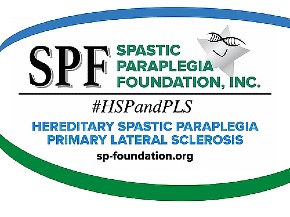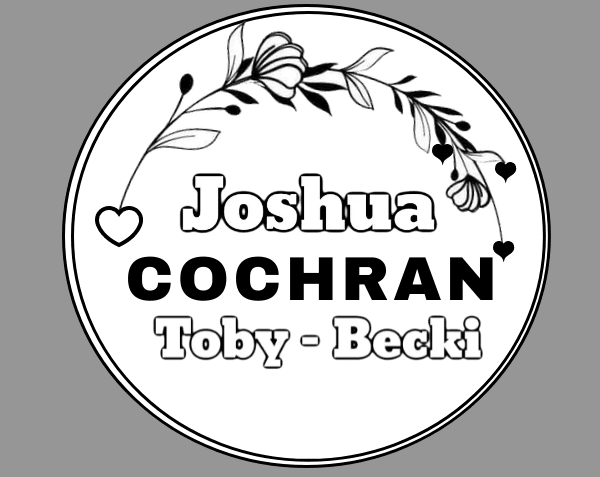Stephen Hahn, President Trump’s nominee to helm the Food and Drug Administration, will today face his first real test in Washington — a confirmation hearing packed with hours of questions from senators on nearly every aspect of the agency’s sprawling portfolio, from mysterious vaping illnesses to the promise of gene therapies.
Hahn, who currently serves as the chief medical executive of MD Anderson Cancer Center, is auditioning for the FDA’s top job at a transformational time for the agency.
The FDA has faced widespread criticism from both lawmakers and public health advocates for its failure to stem the epidemic of youth vaping, even as the Trump White House has shied away from the hands-on approach championed by public health advocates and Hahn’s predecessor Scott Gottlieb. The agency is also being dragged into the bipartisan debate over how to lower the high costs of medical breakthroughs. And then there’s the opioid epidemic, the changing world of clinical trials, and gene therapies, too.
But perhaps most of all he will have to prove he’s ready for the job. And he has big shoes to fill.
Hahn has virtually no Washington experience and will take over following the two-year tenure of Gottlieb, a gregarious policy wonk who won the praise of both Republicans and Democrats by carefully melding market-oriented reforms with activist public health policy. Gottlieb walked into his 2017 confirmation hearing with enough public statements about the FDA to fill their own archive — Hahn will walk in with a resume with just one mention of FDA policy.
Here are 12 burning questions the STAT team expects Hahn will face tomorrow.
How do you feel about Twitter?
Hahn’s predecessor was not shy. Gottlieb, in his two years on the job, put out thousands of words in the form of statements, television appearances, and tweets. Twitter in particular gave him a direct line of communication with the public, and, 280 characters at a time, he explained policy decisions, championed his employees, and scolded people for dietary decisions.
That made Gottlieb a known quantity in the industry and beyond. FDA pronouncements rarely came as a shock or arrived without a lengthy explication from the commissioner. Whether Hahn makes such open use of Twitter — he appears to operate a locked Twitter account — is of less interest than whether he, like Gottlieb, will choose to be the public face of the FDA.
Should the FDA regulate drug prices?
Hahn is surely going to face some shouting from senators anxious about the rising cost of prescription drugs, who will expect commitments about what he plans to do to address the problem.
An FDA commissioner would rarely face such a question in the past — historically the FDA has shied away from anything to do with drug prices. But Gottlieb changed all of that by deriding drug makers for “shenanigans” that blocked lower cost generics from coming to market and waxing poetic about drug pricing policies typically left to other health officials.
Hahn will likely be asked what tactics he believes the FDA can use to bring down drug prices. If he wants to stay under the radar, he will, like past commissioners, emphasize the FDA’s role in approving lower-cost generic drugs — but don’t expect that to impress any skeptical senators.
How will you rein in the e-cigarette industry and curb vaping among teens?
The debate over e-cigarette regulation has heated up in recent months amid an ongoing outbreak of vaping-related illnesses that have sickened thousands and growing concern about the surge in vaping among teens.
The agency’s stance on e-cigarettes has shifted dramatically in recent years. In 2016, after deciding e-cigarettes fell under its regulatory purview, the FDA asked e-cig manufacturers to file applications to market their products by August 2018. Any products that didn’t get the green light from the FDA would, in theory, need to be pulled from the market. That deadline was later bumped to 2022, until a federal court ordered it moved up to May 2020.
Earlier this year, acting FDA Commissioner Ned Sharpless said in a congressional hearing that the agency “should have acted sooner” to tackle the e-cigarette market but pledged to “catch up.”
The question will be how Hahn commits to catching up. The Trump administration has already reversed course on a proposal to pull most flavored e-cigarettes from the market. That move has sparked outrage among public health advocates, who want to see the FDA do more to curb teen e-cigarette use. But the FDA is also under pressure from the vaping industry, which wants to make sure vape shops can stay open and that adults can still access the products.
How can the FDA tackle Alzheimer’s?
For Hahn, this question is personal. His father died of Alzheimer’s. Any opportunity to talk about the disease will give Hahn the chance to demonstrate his personal connection to the work of the FDA and the larger science community.
But it’s a hard question to answer. Drug makers have failed to develop any drugs that could even be submitted to the FDA for review. Getting an Alzheimer’s treatment to market, at this point, is in the hands of drug makers — not the FDA commissioner.
But it also wouldn’t be the first time the FDA has implemented policies to encourage drug makers to work closely with the agency even before submitting a drug application. Take the FDA’s regenerative medicine advanced therapy (RMAT) designation, which affords drug makers working on products like cell therapies some extra hand-holding from the FDA. If Hahn proposed something like that, he could show lawmakers he’s thought seriously about innovative new ways the FDA could advance science.
How much data does a new drug really need?
Over the past decade, the FDA has been more and more willing to consider less and less data before approving a new drug, delighting industry and alarming some public health advocates. And thus the big question biopharma has for Hahn is simple: Are you going to carry on tradition, or would your FDA be more conservative?
The agency’s willingness to approve drugs based on short-term clues of efficacy, rather than waiting for years of data, has been long in the making. But Trump’s FDA escalated the practice, handing out one approval based on no clinical data at all.
That’s had a trickle-down effect on the whole biopharma ecosystem. A flexible FDA means a quicker path to profit, a cheaper drug-development process, and thus a more appealing investment. If Hahn plans to shake up what has become FDA dogma, every link in the drug industry’s revenue chain could feel the effects.
Controversy seems to follow everywhere you go, what gives?
Hahn faced not one, not two, but three controversies during his time at MD Anderson and the University of Pennsylvania. One resulted in Hahn being dragged before a congressional panel to explain why doctors were improperly planting radioactive seeds meant to treat prostate cancer into veterans. Another controversy almost got MD Anderson kicked out of the Medicare program. The third left Hahn assuring his colleagues he did not racially target scientists.
Skeptical senators are likely to ask Hahn if he can’t prevent disaster at an academic medical center, how is he going to control the even larger, and more high stakes, FDA?
Hahn can use these not so stellar tidbits on his resume to demonstrate that he’s the leader people turn to when they need to clean up messes, and that he isn’t afraid to take responsibility for controversies, even when they’re not directly his fault. That’s already the line his supporters are touting. Take one MD Anderson official who recently told STAT that Hahn is a master of “institutional turnaround experiences.”
Is $1 million too much to charge for a gene therapy?
Some say cutting-edge gene therapies that offer the potential to cure previously devastating diseases are worth that cost. Others see the dramatic price tags as price gouging. But where does Hahn stand?
It’s not a hypothetical: The FDA has already approved Novartis’ gene therapy, Zolgensma, which launched carrying a sticker price of $2.1 million, and there’s more coming down the pike: There’s at least 70 Phase 3 clinical trials underway for cell and gene therapies, according to data from the Alliance for Regenerative Medicine.
Even if Hahn concedes he has no power to police the price of these drugs, anything he says will send a clear signal of where he stands on the debate over the rising costs of drugs.
Should the FDA stop approving new opioid medications?
Critics have argued that the FDA’s lax oversight of opioid medications contributed to the addiction crisis, as the agency allowed additional addictive drugs onto the market without taking into consideration their potential impact on public health. One proposal, then: stop approving opioids.
Trump’s FDA, so far, has both been open to new opioids and showed more scrutiny of the medications. In 2017, in an unusual move, it asked Endo to pull from the market its drug Opana ER, which was blamed for igniting an HIV outbreak in Indiana. The company complied with the request. But over some objections about the risk of diversion, the FDA in 2018 approved a highly powerful opioid called Dsuvia, partly at the behest of the Department of Defense.
The FDA has rejected calls that it stop approving new or reformulated opioids, noting that it is obligated to review marketing applications for new drugs. But it has come out with draft guidelines for how it intends to assess future opioid candidates, with a nod at weighing the broader public health consequences of new approvals. Some advocates and lawmakers, though, want more action. What does Hahn think the agency should do?
In your experience as a physician-researcher, will taxpayer-funded science suffer if human fetal tissue procurement is barred?
In July, HHS announced it had discontinued all government-run research that involves fetal tissue, which is obtained from elective abortions. That included research being conducted by scientists at the FDA and the National Institutes of Health. HHS also said that any grant application for new or renewed funding for fetal tissue research conducted by outside scientists would require the approval of an ethics advisory board.
Dr. Brett Giroir, who has served as acting FDA commissioner since Nov. 1, played a significant role in the push to limit fetal tissue research. The decision was a victory for anti-abortion activists who have lobbied against such research, but drew criticism from scientists who say fetal tissue research has been essential to developing lifesaving vaccines and treatments.
What evidence of safety would you require in order to approve a CRISPR-based therapy?
Although the FDA has approved only two gene therapies that introduce new DNA directly into patients, Luxturna and Zolgensma, clinical trials of hundreds more are underway. Studies of human cells growing in lab dishes have found that CRISPR-based genome editing can alter DNA in ways that could raise the risk of cancer and other serious diseases — but, in all likelihood, not for years. Many other studies find that CRISPR can miss its target or scramble the genome in unintended, but potentially harmful, ways.
One way to catch such dangerous changes is to sequence the targeted genome, but that’s time-consuming and expensive. Will the FDA nevertheless require that in preclinical studies of mice, before green-lighting human studies, and/or in clinical trial patients? How long will sponsors be required to follow study participants for long-delayed adverse events?
If a CRISPR-based or other genetic therapy does raise the risk of cancer, but not for decades, how will the agency balance that risk against the immediate benefits of the therapy, especially to a child? Researchers who are developing CRISPR-based therapies for fatal childhood diseases such as progeria say parents tell them they would gladly accept the risk of their child’s developing cancer in adulthood if only he or she can survive that long; will your FDA agree?
Can clinical trials based on one person be enough?
The FDA still seems to be sketching out its process for handling truly bespoke drugs. Last month, FDA center directors Janet Woodcock and Peter Marks wrote an editorial in the New England Journal of Medicine on personalized medicine. That editorial appeared alongside a report on milasen — a drug created for a young girl with Batten disease named Mila. Doctors at Boston Children’s Hospital sequenced Mila’s genes and designed a drug similar to Spinraza — an antisense oligonucleotide — that could shut down Mila’s particular mutation.
While the editorial itself asked 13 questions about the ethical, financial, and regulatory ramifications of drugs that cannot be tested in traditional clinical trials, Woodcock and Marks provided little in the way of answers.
When more examples like these emerge — as they eventually will — the FDA will need some way of handling them. Sure, regulatory pathways can always be tweaked. But starting with a process that’s too permissive or not permissive enough will have serious ramifications for the people taking these drugs.
How should the FDA improve regulating rogue stem cell clinics?
The proliferation of clinics offering patients unproven, and sometimes unsafe, stem cell “therapies” under the guise that they can treat everything from injuries to neurodegenerative diseases has put patients at risk. But there are so many of them that regulators have had to prioritize enforcement actions against the worst actors — those with highly publicized cases of alleged patient harm or unethical actions. So how can the FDA improve oversight of these clinics?
Other questions: In 2017, the FDA outlined new guidelines for companies working on stem cell therapies and said it would give clinics a few years to come into compliance and seek FDA approval for their products. So what can the FDA to ensure that clinics are moving forward with those processes, and what will the agency do with clinics that don’t comply?
Damian Garde, Megan Thielking, Sharon Begley, and Andrew Joseph contributed reporting.









